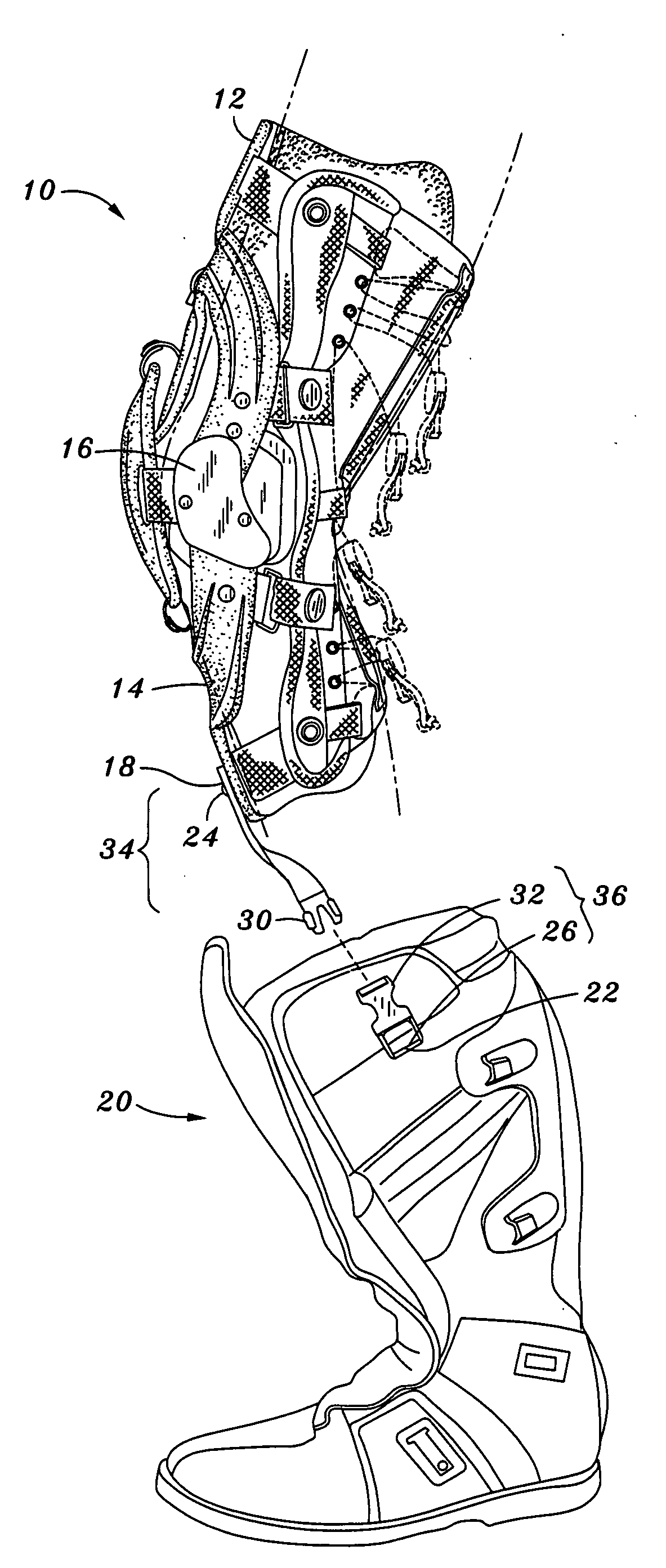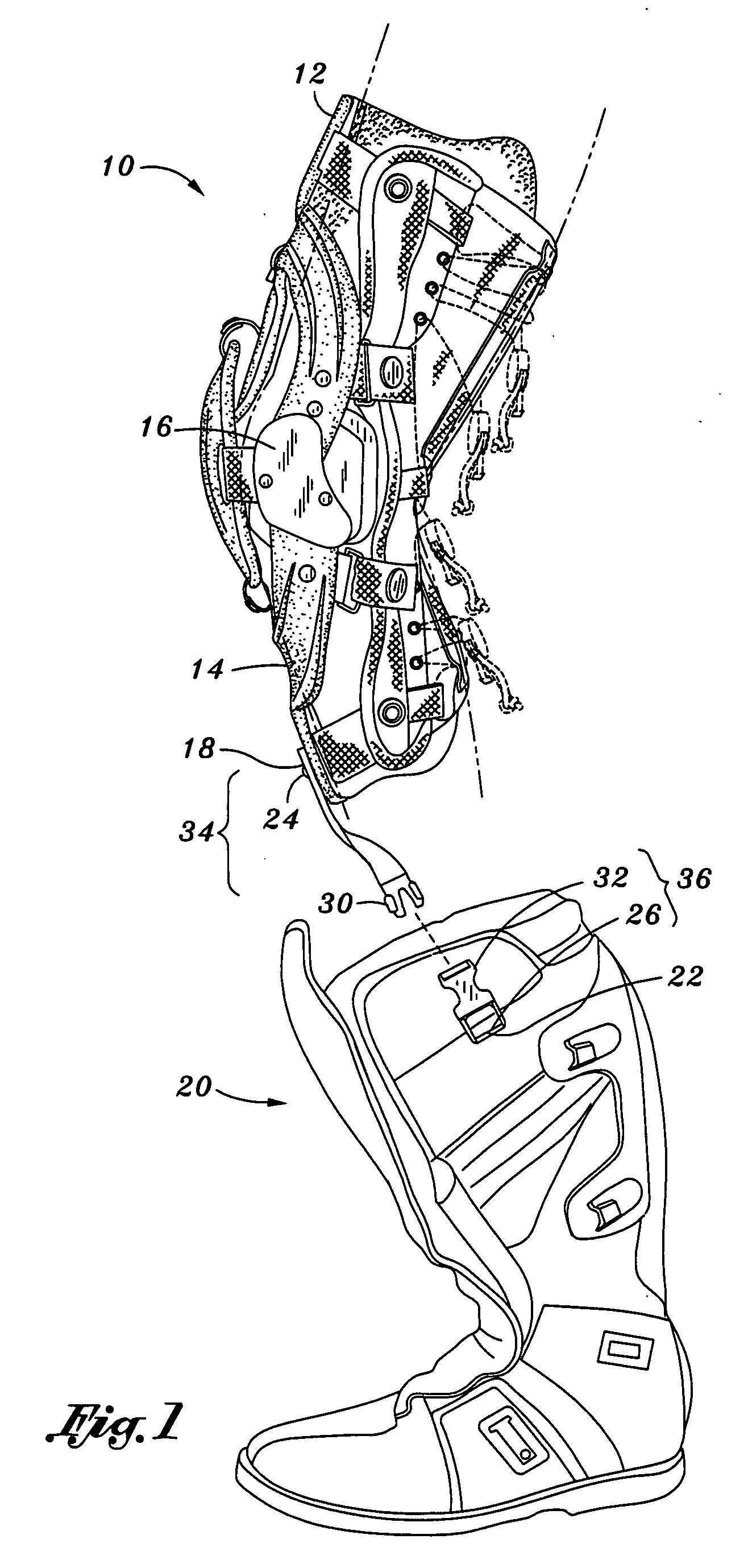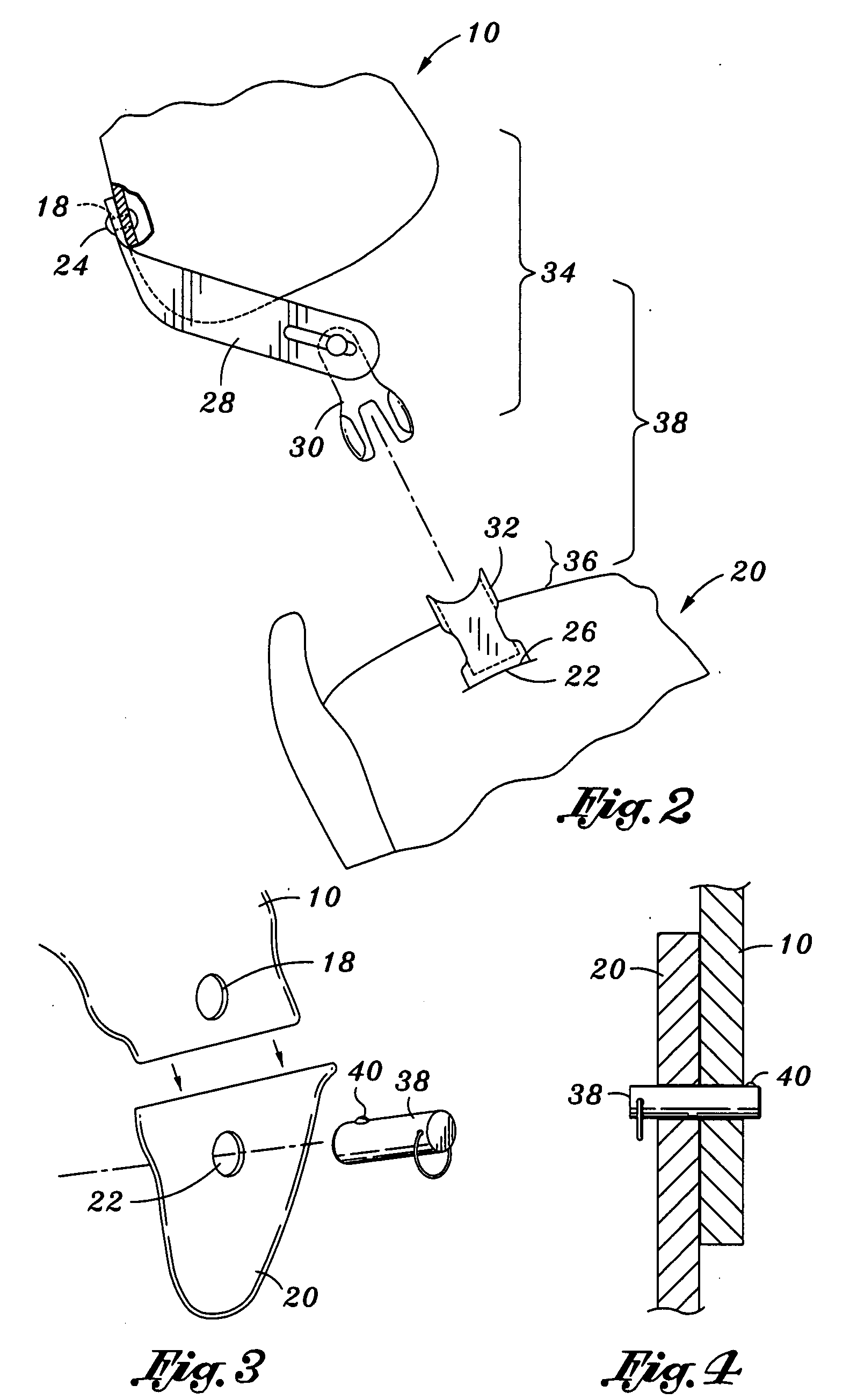Tether member connecting a knee brace to a boot
a knee brace and tethering technology, applied in the field of tethering members, can solve the problems of knee injury, knee injury, prone to injury, etc., and achieve the effect of reducing the strain on the knee ligaments and reducing the chance of injury
- Summary
- Abstract
- Description
- Claims
- Application Information
AI Technical Summary
Benefits of technology
Problems solved by technology
Method used
Image
Examples
Embodiment Construction
[0026]The ligaments holding a knee joint together are capable of withstanding a minimal level of tension. Knee ligaments may be placed in tension when a person's foot rotates independently from the corresponding knee joint. If the foot rotates independently from the knee joint to a point where the knee ligaments begin to overextend, the rotation of the foot has exceeded a maximum foot range of rotation. The present invention is a device which limits independent rotation of the foot relative to the knee joint to prevent rotation beyond the maximum foot range of rotation.
[0027]Referring to FIG. 1, there is provided a device for protecting ligaments in a knee joint of a user. The device includes a knee brace 10 positionable about a user's knee joint. The knee brace 10 comprises an upper frame member 12, a lower frame member 14, and a joint member 16 pivotally connected to the upper and lower frame members 12, 14. The upper frame member 12 further includes a brace connection point 18. T...
PUM
 Login to View More
Login to View More Abstract
Description
Claims
Application Information
 Login to View More
Login to View More - R&D
- Intellectual Property
- Life Sciences
- Materials
- Tech Scout
- Unparalleled Data Quality
- Higher Quality Content
- 60% Fewer Hallucinations
Browse by: Latest US Patents, China's latest patents, Technical Efficacy Thesaurus, Application Domain, Technology Topic, Popular Technical Reports.
© 2025 PatSnap. All rights reserved.Legal|Privacy policy|Modern Slavery Act Transparency Statement|Sitemap|About US| Contact US: help@patsnap.com



